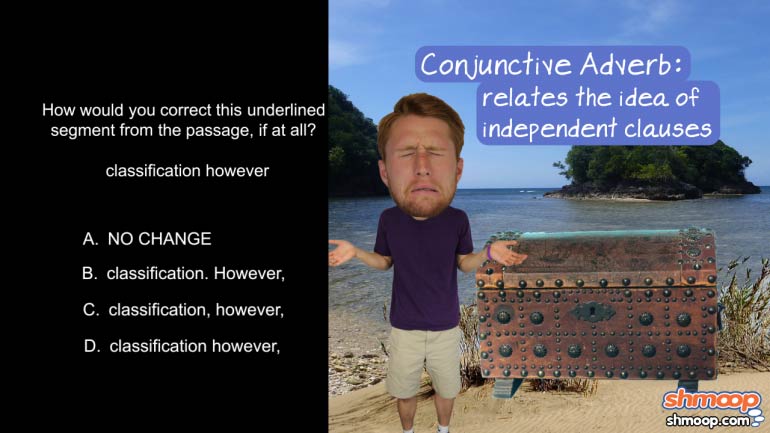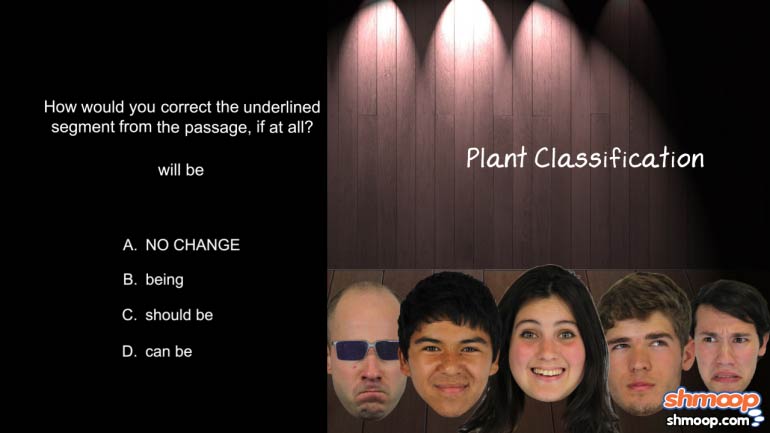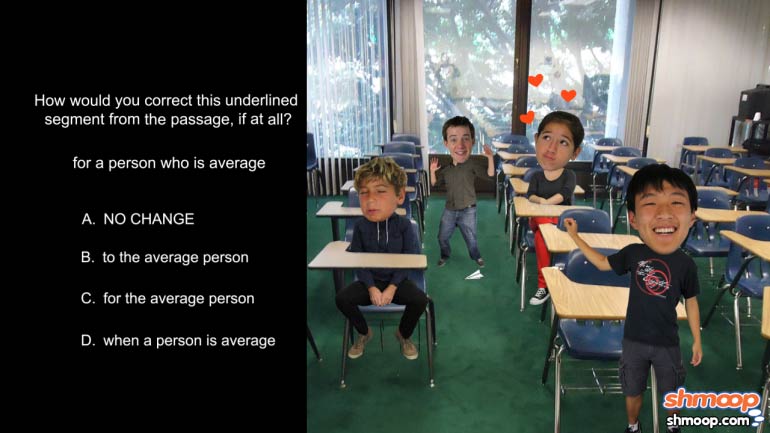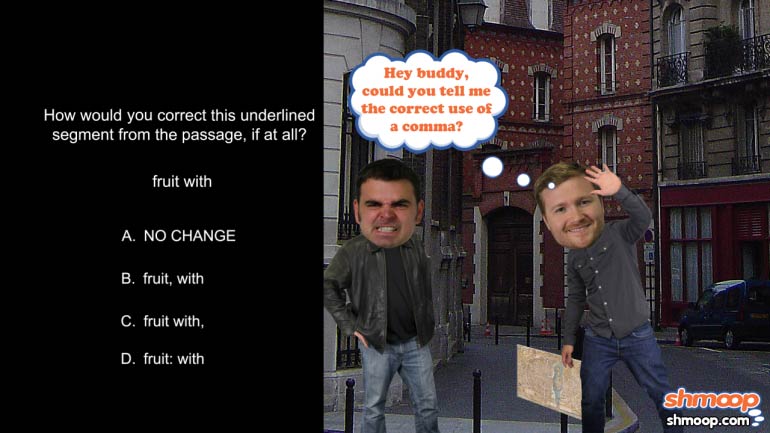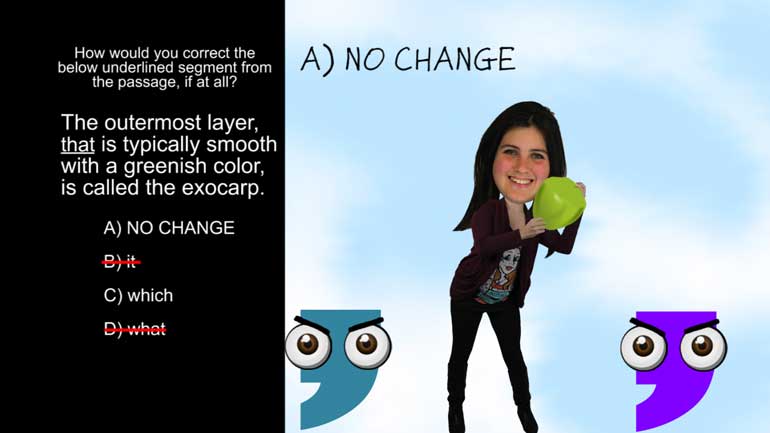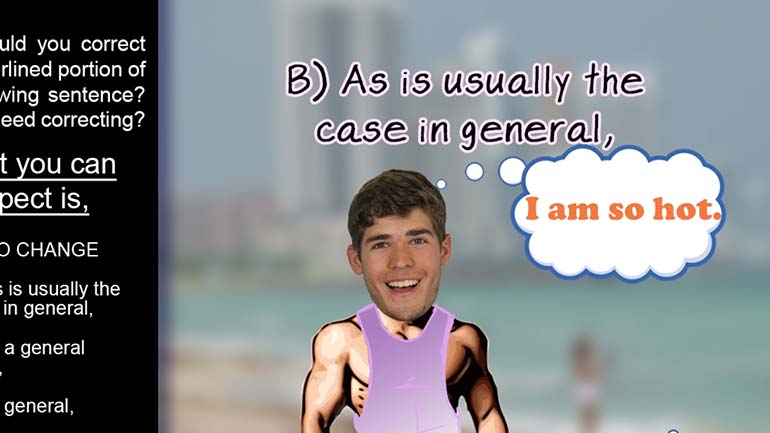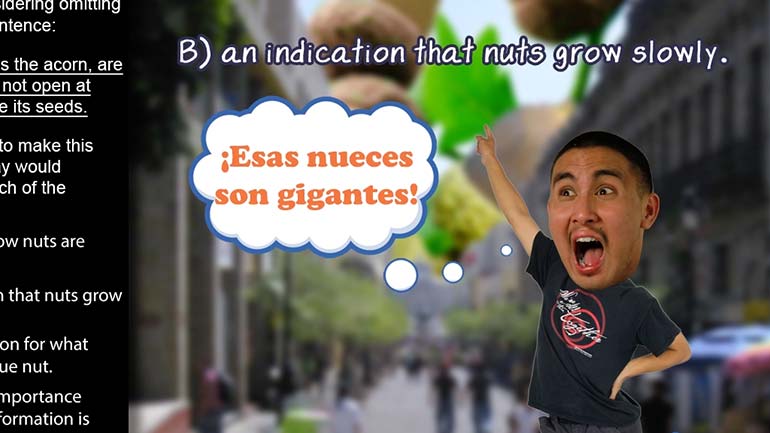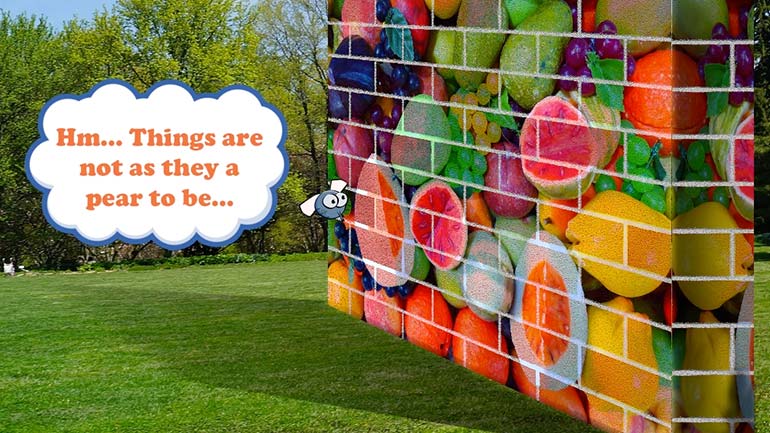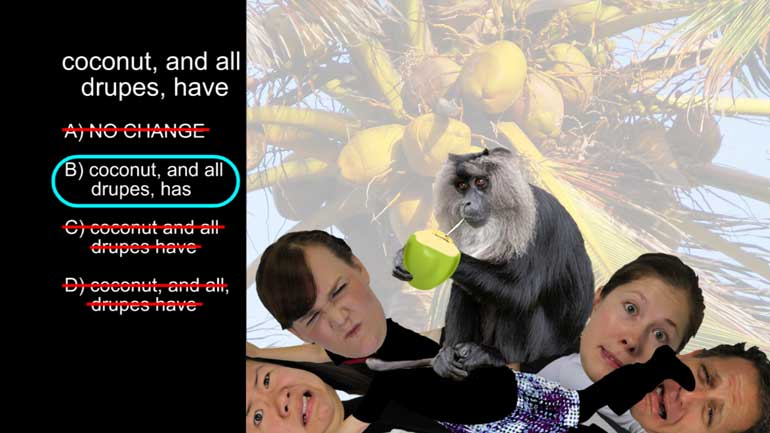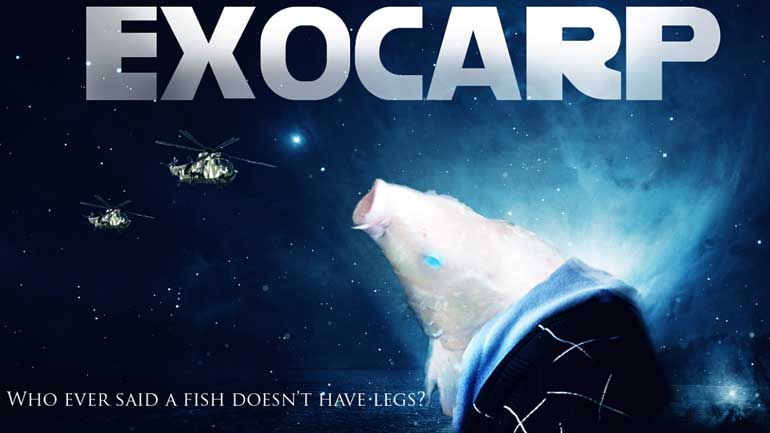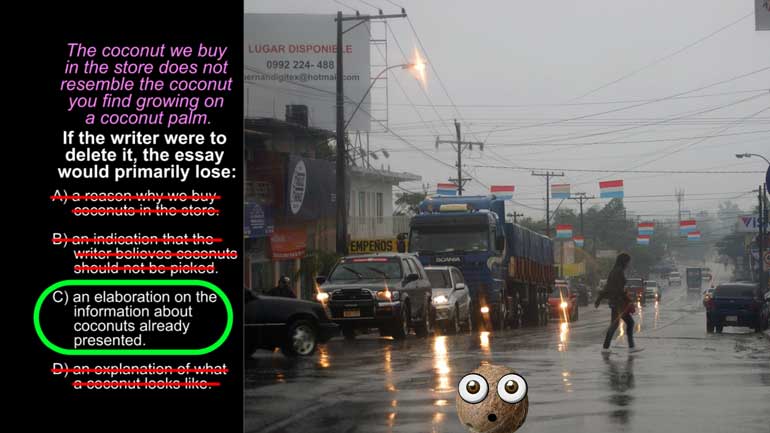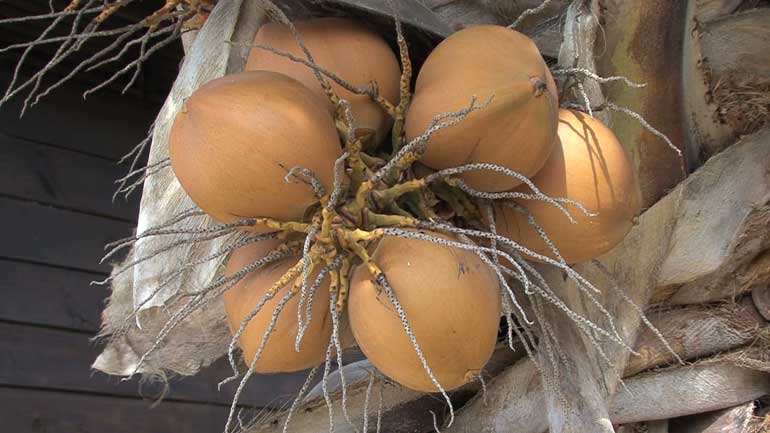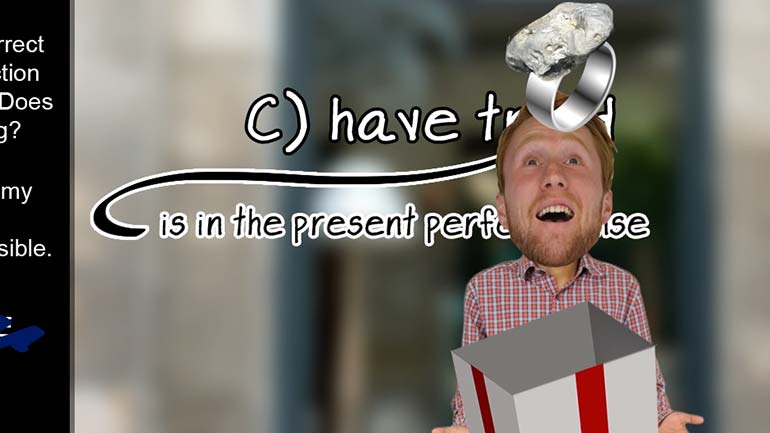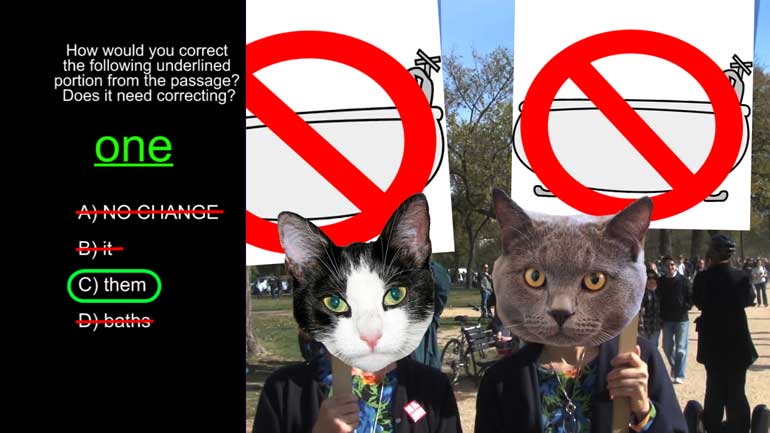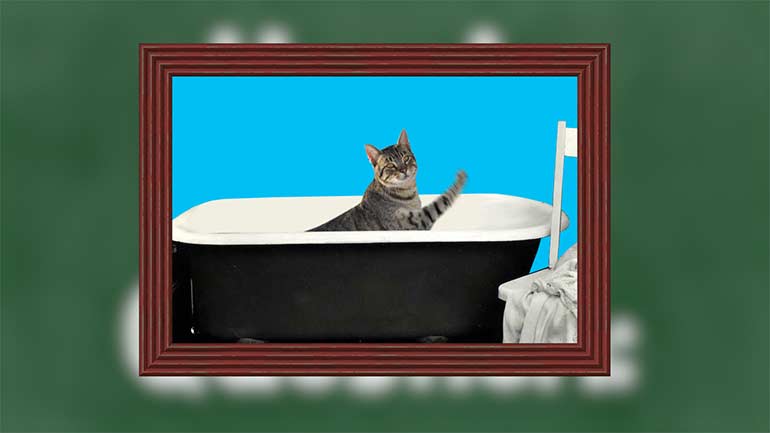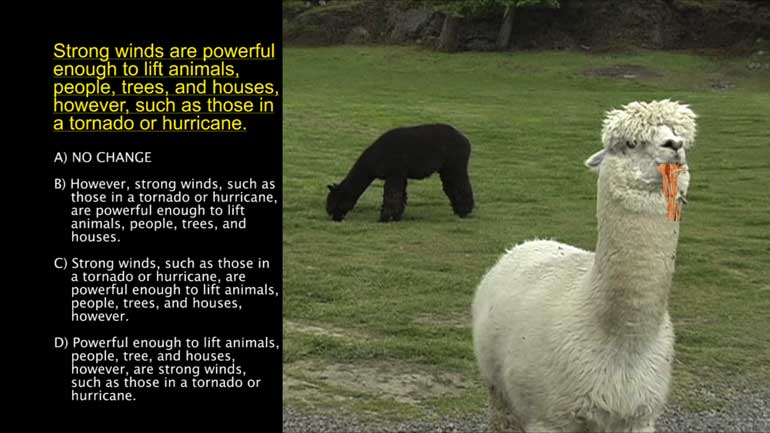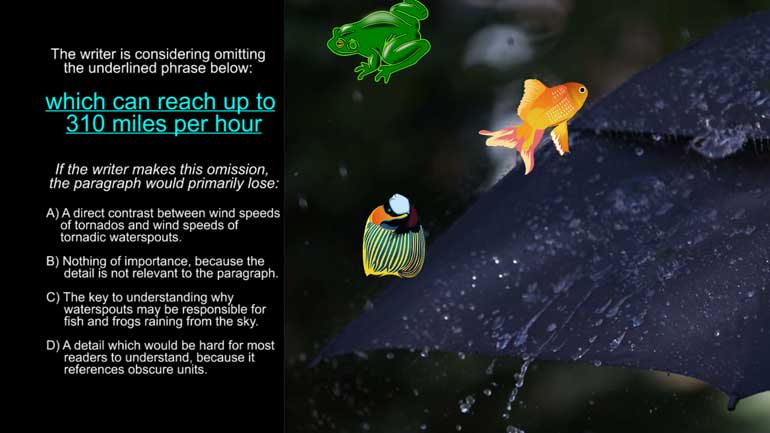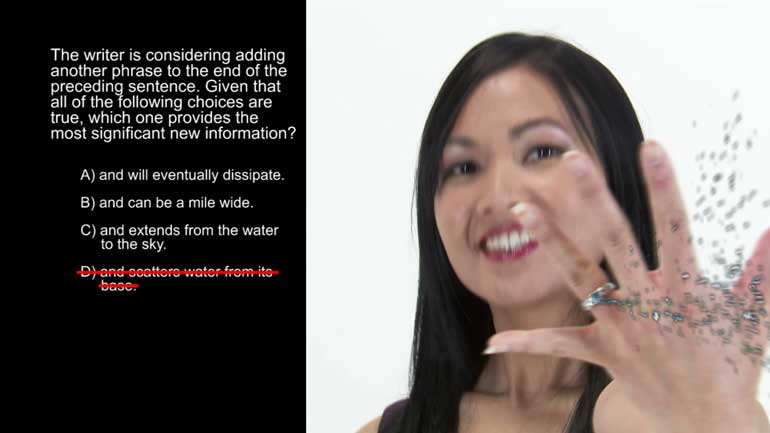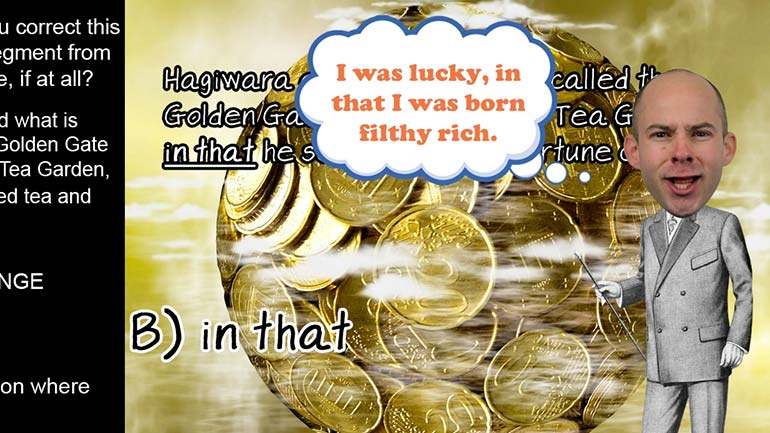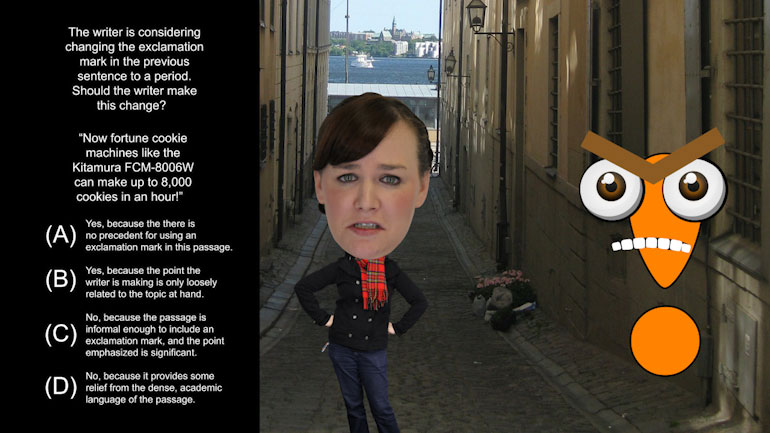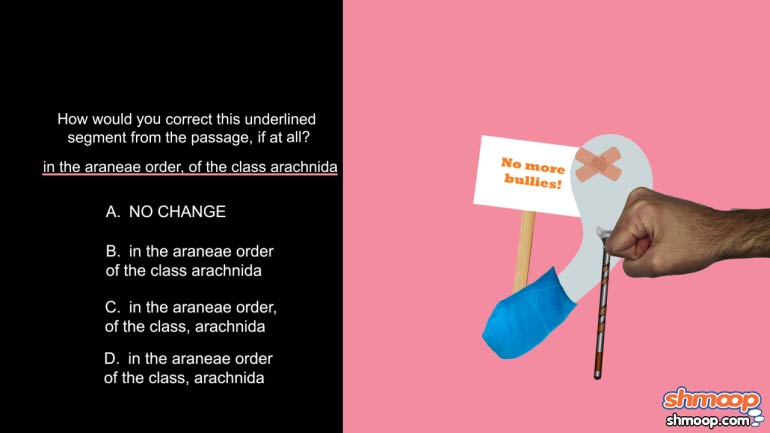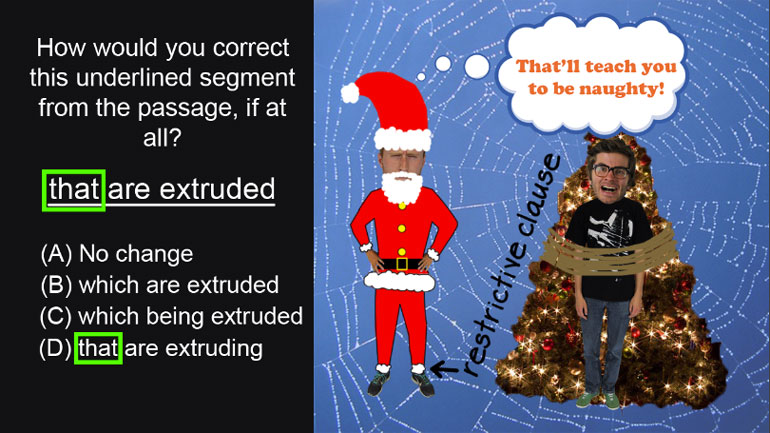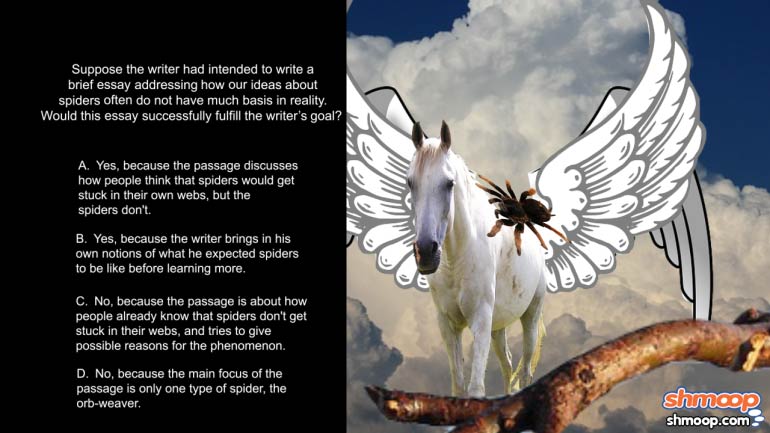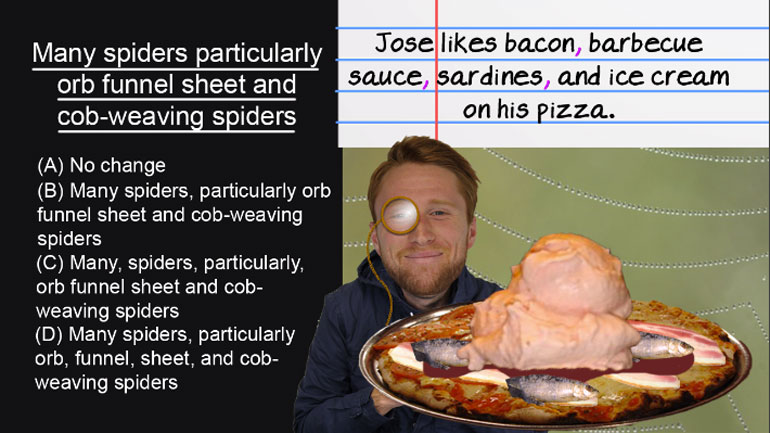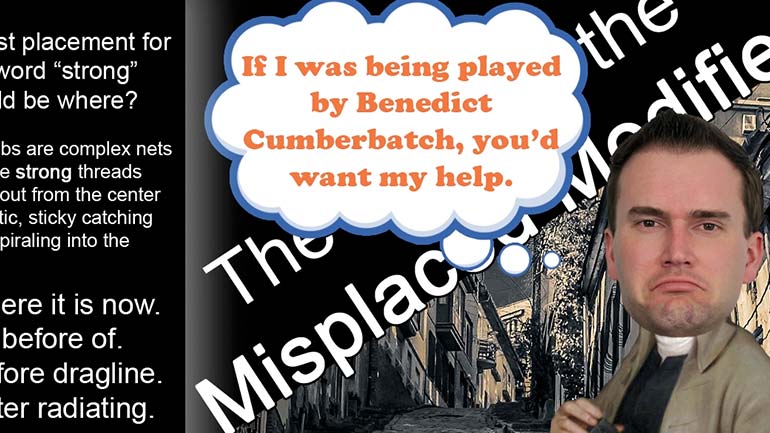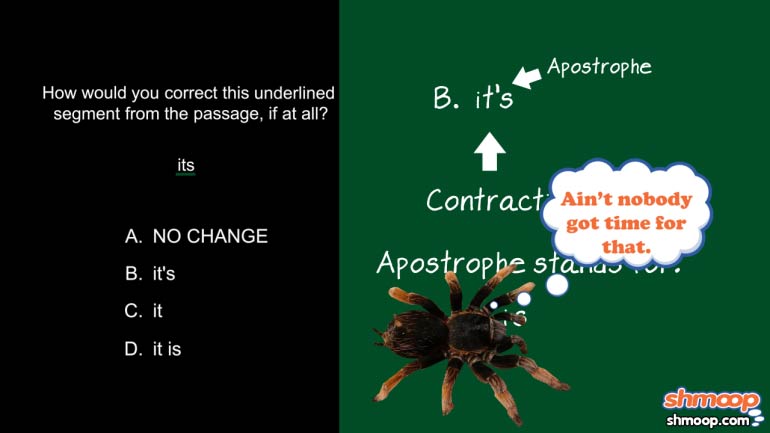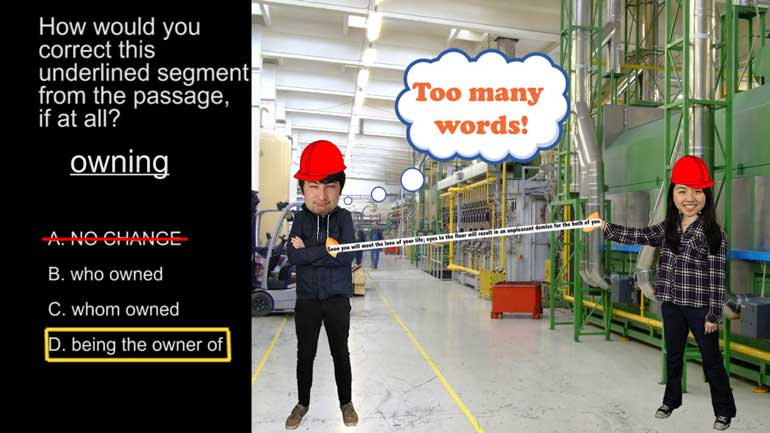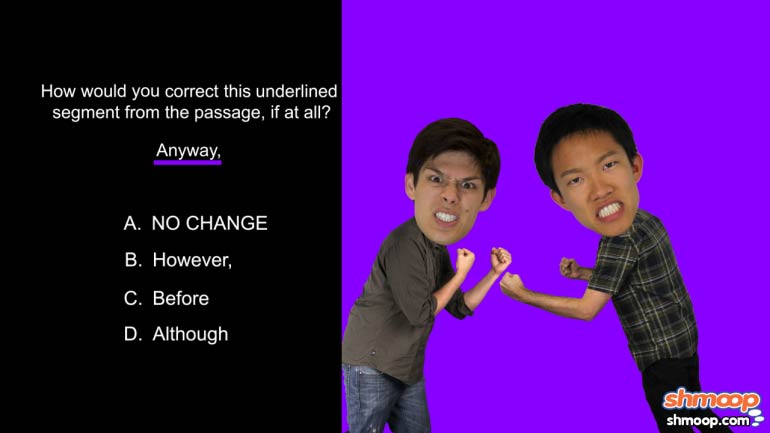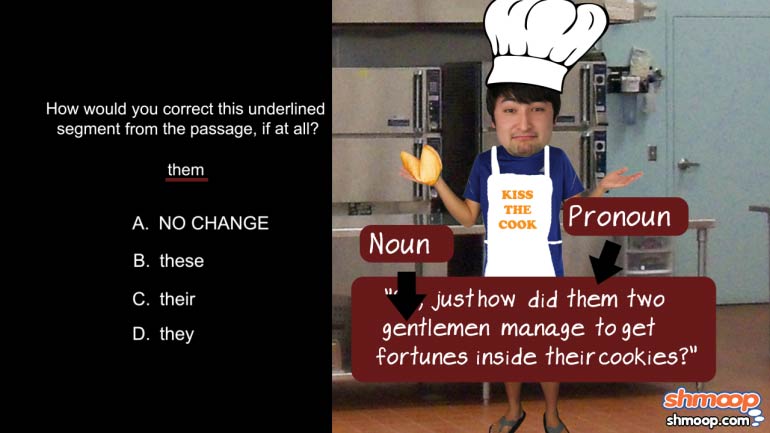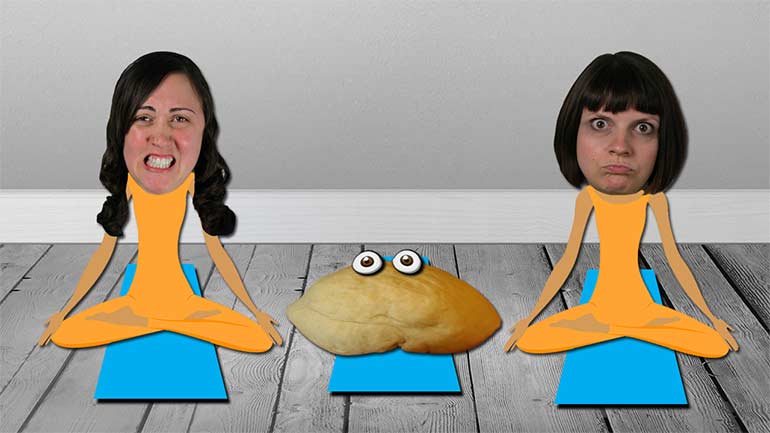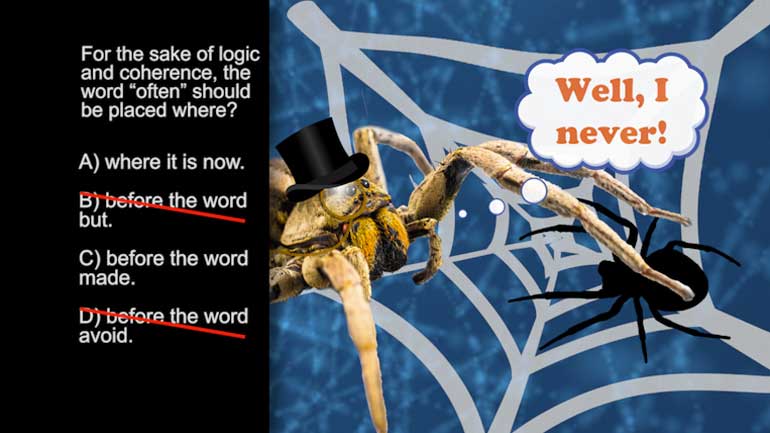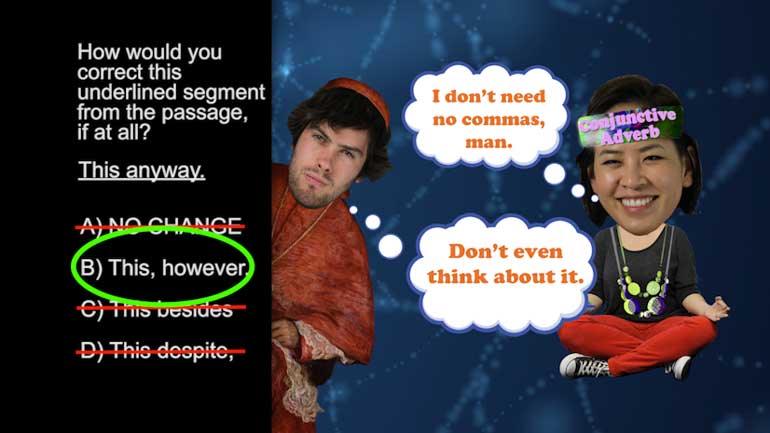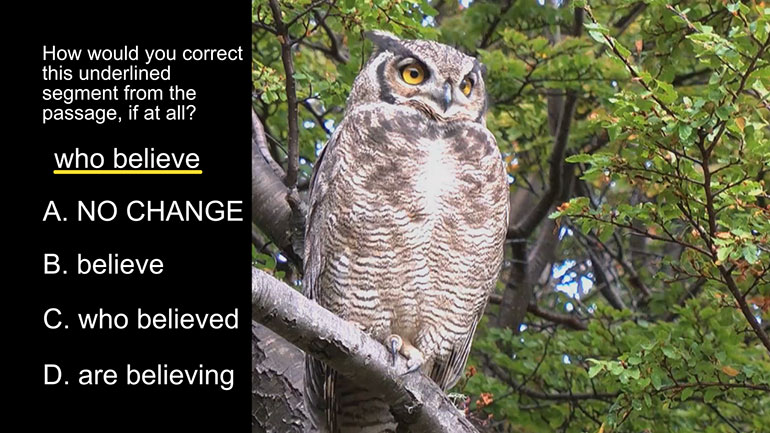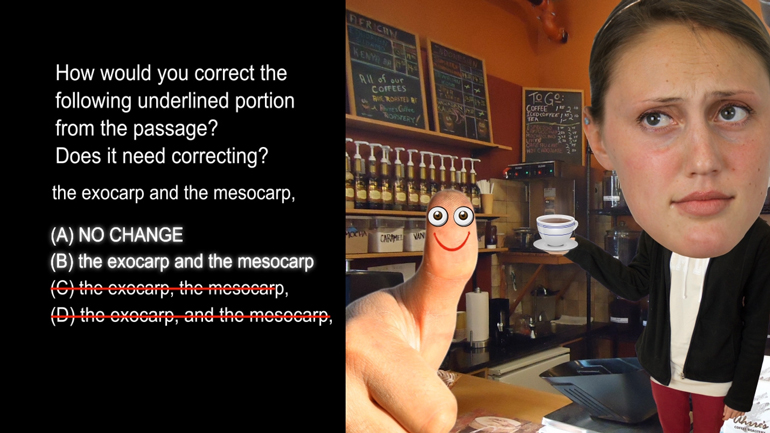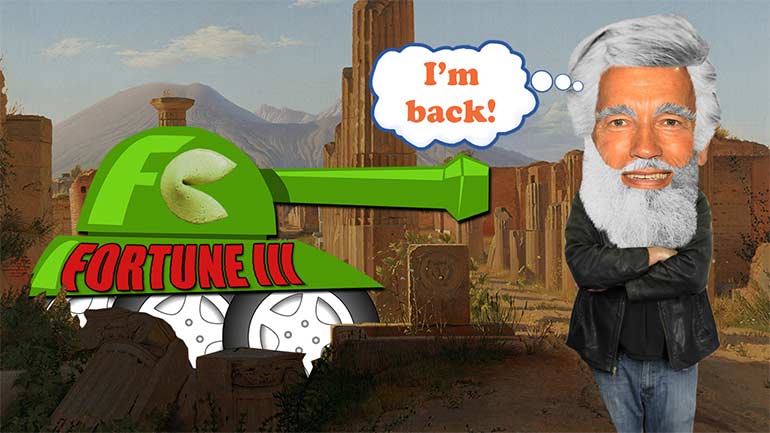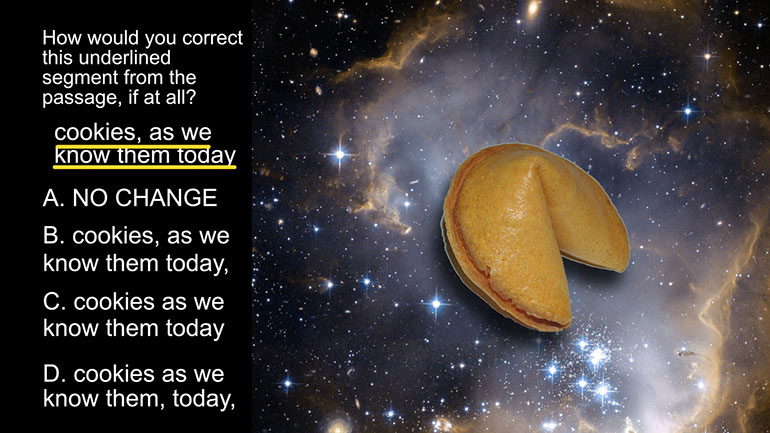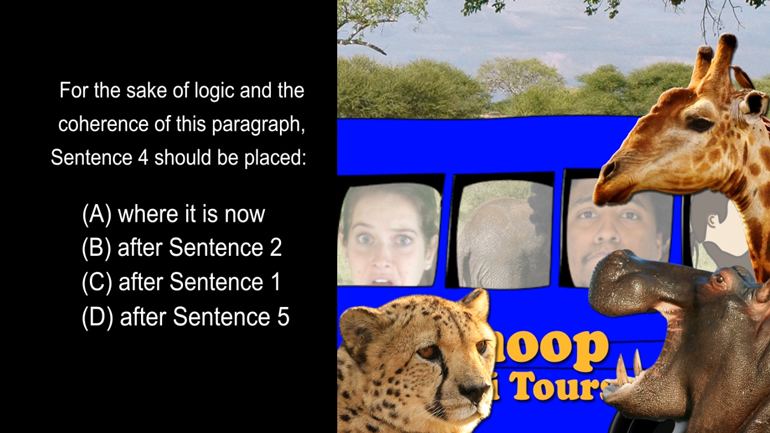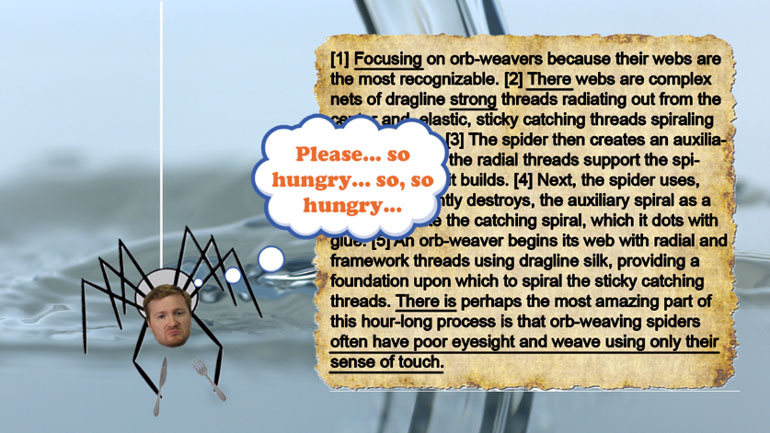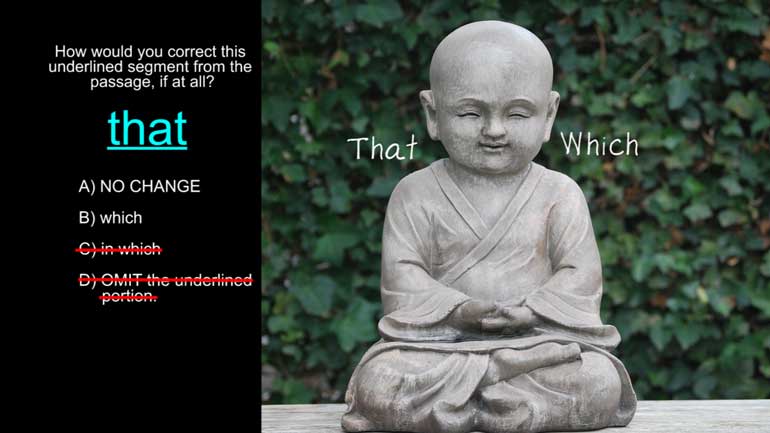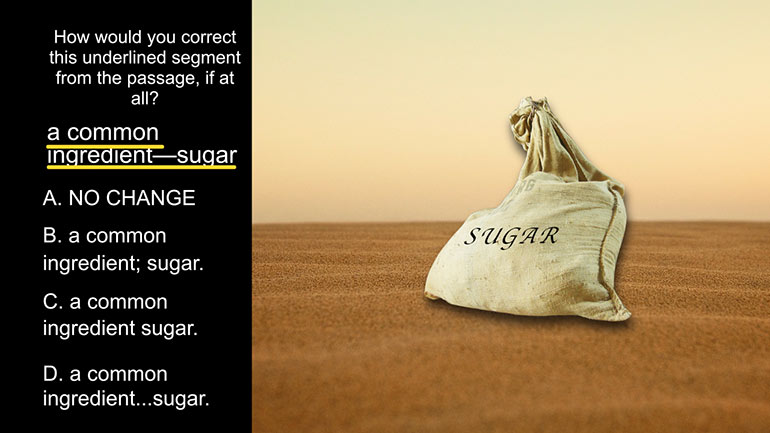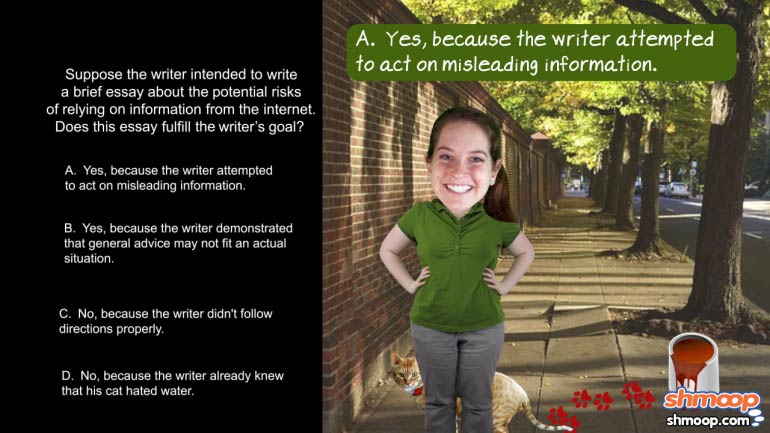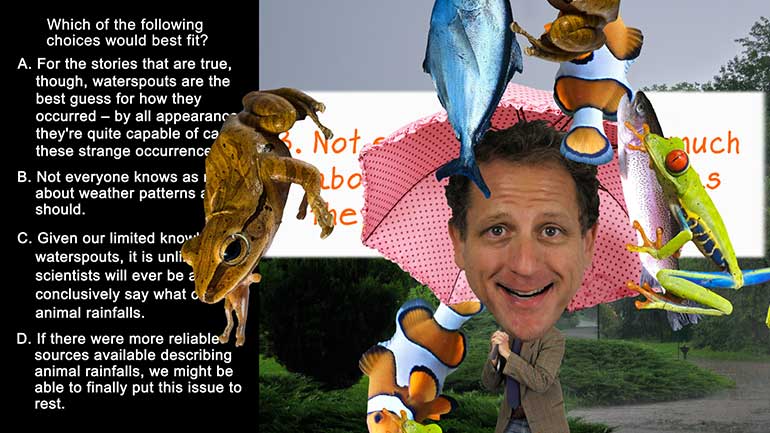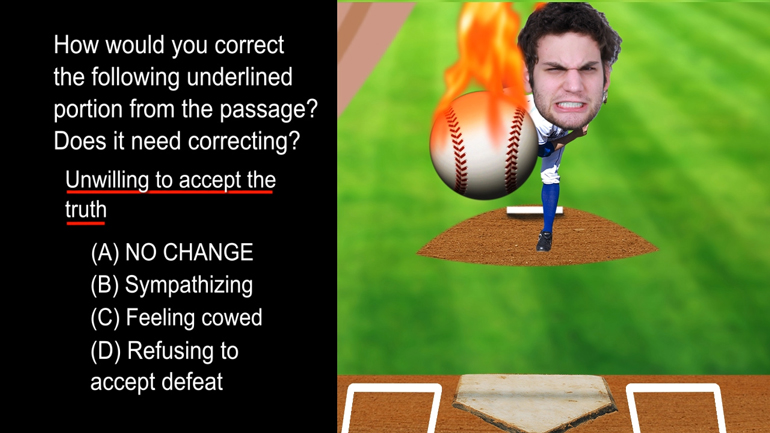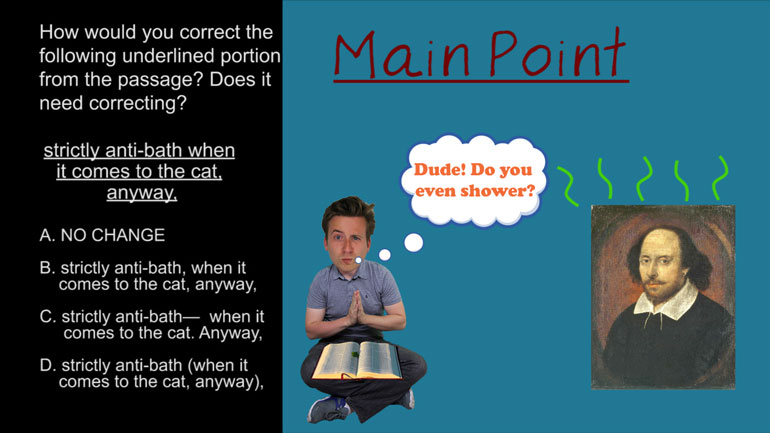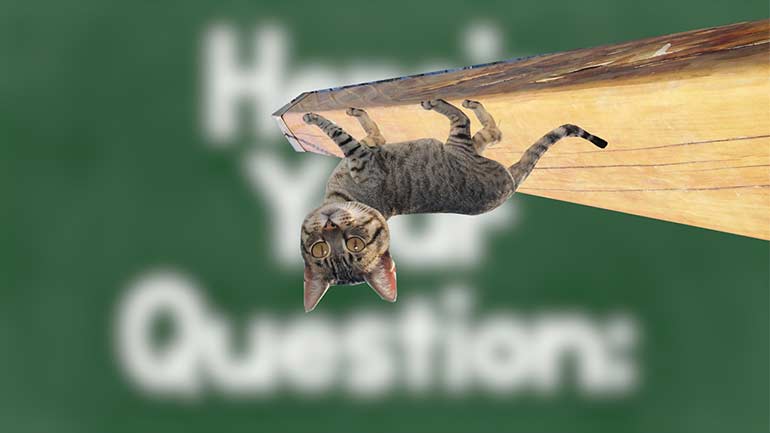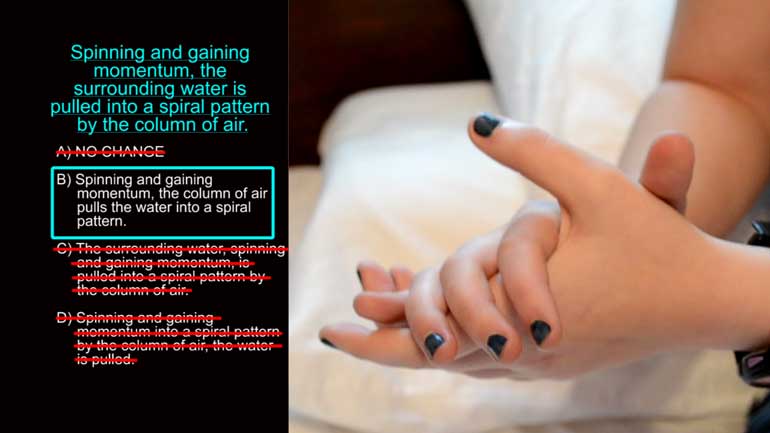ShmoopTube
Where Monty Python meets your 10th grade teacher.
Search Thousands of Shmoop Videos
Passage Drill Videos 75 videos
ACT English: Passage Drill Drill 1, Problem 1. Conjunctive Adverbs.
ACT English: Passage Drill 1, Problem 2. What is the right tense for this verb?
ACT English: Passage Drill Drill 1, Problem 3. Keeping an eye out for wordiness.
ACT English 1.5 Passage Drill 220 Views
Share It!
Description:
ACT English: Passage Drill 1, Problem 5. What is the best, most concise way to express the underlined portion?
Transcript
- 00:04
Here's your Shmoop du jour, brought to you by coconut shells. They go great with a grass skirt.
- 00:23
How would you correct this underlined segment from the passage, if at all?
- 00:27
cover that is enclosing
- 00:30
And here are the potential answers:
- 00:33
The word "that" frequently inflicts wordiness on innocent sentences.
Full Transcript
- 00:36
If a sentence works without it, it's always best to leave it out.
- 00:40
We can eliminate choice (A) for this reason. "Cover that is enclosing" isn't the
- 00:46
most concise way to express this thought.
- 00:49
The "that" is making this poor sentence wordy when it doesn't need to be.
- 00:53
"That" causes problems in choice (C) as well. This choice also makes the mistake of
- 00:57
needlessly placing us in the future tense with the word "will."
- 01:01
The rest of the sentence is in the present tense, so shifting into the future tense for
- 01:05
no reason is inconsistent.
- 01:07
It's not like these coconut shells are only going to enclose coconuts on some day in the
- 01:11
future; they're doing it right now.
- 01:14
Choice (D) incorrectly makes "cover" the subject and "encloses" the verb. This sentence already
- 01:19
has a subject, "drupe," and a verb, "is."
- 01:25
All the other parts of the sentence should be working towards describing this "drupe"
- 01:29
and nothing else. There's no room for rival subjects and predicates here.
- 01:34
Choice (B) is the correct answer. For starters, it eliminates that troublemaking "that."
- 01:38
It also correctly applies the word "enclosing." In this form, "enclosing" is a participle,
- 01:44
which is a word derived from a verb that acts as an adjective by modifying a noun.
- 01:48
Here, the participle "enclosing" introduces a participle phrase that describes the coconut's
- 01:52
"hard stony cover."
- 01:54
But...while the coconut seems tough on the outside, inside he's a real softy
Related Videos
ACT English: Punctuation Drill 2, Problem 2. Where should the semi-colon be placed?
ACT English: Punctuation Drill 3, Problem 1. How should this sentence be changed so that it is grammatically correct?
ACT English: Punctuation Drill 3, Problem 2. How should we properly hyphenate the words in this sentence?
ACT English: Punctuation Drill 3, Problem 4. Which choice best formats this list of items?
ACT English: Punctuation Drill 2, Problem 1. Which choice of punctuation best completes the sentence?
